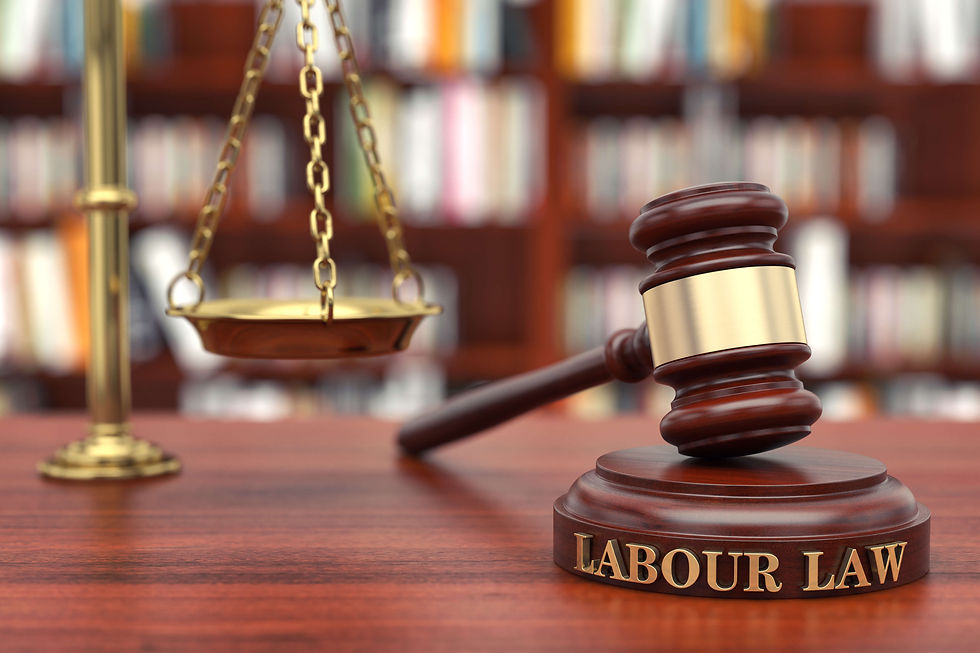24/7 National Hotline: 0860 163 272 | Email: info@neasa.co.za

Labour Relations Act South Africa: A Guide for Employers
August 26, 2025
What is the Labour Relations Act (LRA)?
The Labour Relations Act 66 of 1995 (LRA) is the cornerstone of employment law in South Africa, forming the legal framework that governs the relationship between employers, employees, employer organisations and trade unions. The LRA also plays a critical role by regulating collective bargaining, employee participation in decision-making and the resolution of labour disputes.
Why LRA Compliance Matter for Employers
For employers, compliance with the LRA is mandatory. Non-compliance can have serious financial and legal consequences. Dismissals deemed unfair (substantively or procedurally or both), or unlawful labour practices can result in costly CCMA awards, including reinstatement orders with full back pay.
Avoid costly mistakes and stay compliant. Contact NEASA about your legal obligation as an employer
Employers Responsibility Under The Labour Relations Act
Navigating the LRA starts with understanding your basic responsibilities as an employer. Her's what the Act expects from you:
Implementing Fair Workplace Policies:
Internal policies - such as disciplinary codes - must comply with the principles of procedural and substantive fairness.
Recognising and Engaging with Trade Unions:
Where a union meets representativeness thresholds, and follows the correct procedures to obtain organisational rights, employers must facilitate union rights.
Managing Dismissal Procedures Properly:
Employers are required to act consistently and follow due process before taking any action.
Protect your business with the right labour practices. Book a consultation with NEASA today!
Disciplinary Procedures Under the LRA
Misconduct vs. Poor Work Performance
While misconduct involves intentional or negligent rule-breaking (e.g., theft, insubordination, negligence), poor work performance is a failure to meet job expectations despite effort. The LRA prescribes different procedures - misconduct may justify warnings or dismissal, while poor work performance typically requires counseling and support before dismissal is considered. The LRA emphasises fairness above all when dealing with misconduct.
Disciplinary Action Requirements
When any disciplinary action is taken, employers must:
Investigate allegations promptly and fairly.
Notify the employee of the allegations in understandable terms.
Provide the employee with an opportunity to respond.
Inform the employee of the outcome.
Apply disciplinary actions consistently.
Handling Unfair Dismissal Claims the Right Way
Common Employer Pitfalls
Terminating employment without a hearing.
Inconsistent disciplinary practices.
Poorly documented processes.
If taken to the CCMA, employers must prove both:
Substantive fairness (was there a valid reason?), and
Procedural fairness (was the right process followed?).
Grounds for Dismissal
Fair dismissal grounds include:
Operational requirements (retrenchment).
Misconduct.
Incapacity (ill health or poor work performance).
Automatically Unfair Dismissal
A dismissal is automatically unfair if the reason is tied to protected rights. This includes:
taking part in a legal strike or protest;
refusing to work during a protected strike;
refusing a demand over working conditions;
pregnancy or related matters;
being discriminated against unfairly (on grounds like race, gender, or religion); and
raising complaints, or whistleblowing under the Protected Disclosures Act.
Facing a CCMA case or international dispute? NEASA is here to support you evenry step of the way.
How Employers Can Prepare for Labour Disputes
Preparation is key. Every business should:
Establish an internal grievance procedure.
Ensure fair labour practices and procedures.
Document all disciplinary steps.
Know your rights during conciliation and arbitration.
NEASA offers direct representation and strategic guidance in both CCMA and Labour Court matters.
Let NEASA help you stay labour law compliant. Contact us now and ensure your policies meet the latest legal standards.
Final Thoughts for Employers
From employment contracts to disciplinary procedures, the LRA sets the standard for fairness and compliance.
Here is your action plan:
Partner with the labour law expert NEASA to:
Audit your internal HR and IR processes.
Review disciplinary policies.
Train your managers on LRA requirements.
Keep you updated on amendments.
Need help navigating the Labour Relations Act? Get expert guidance tailored to your business.
